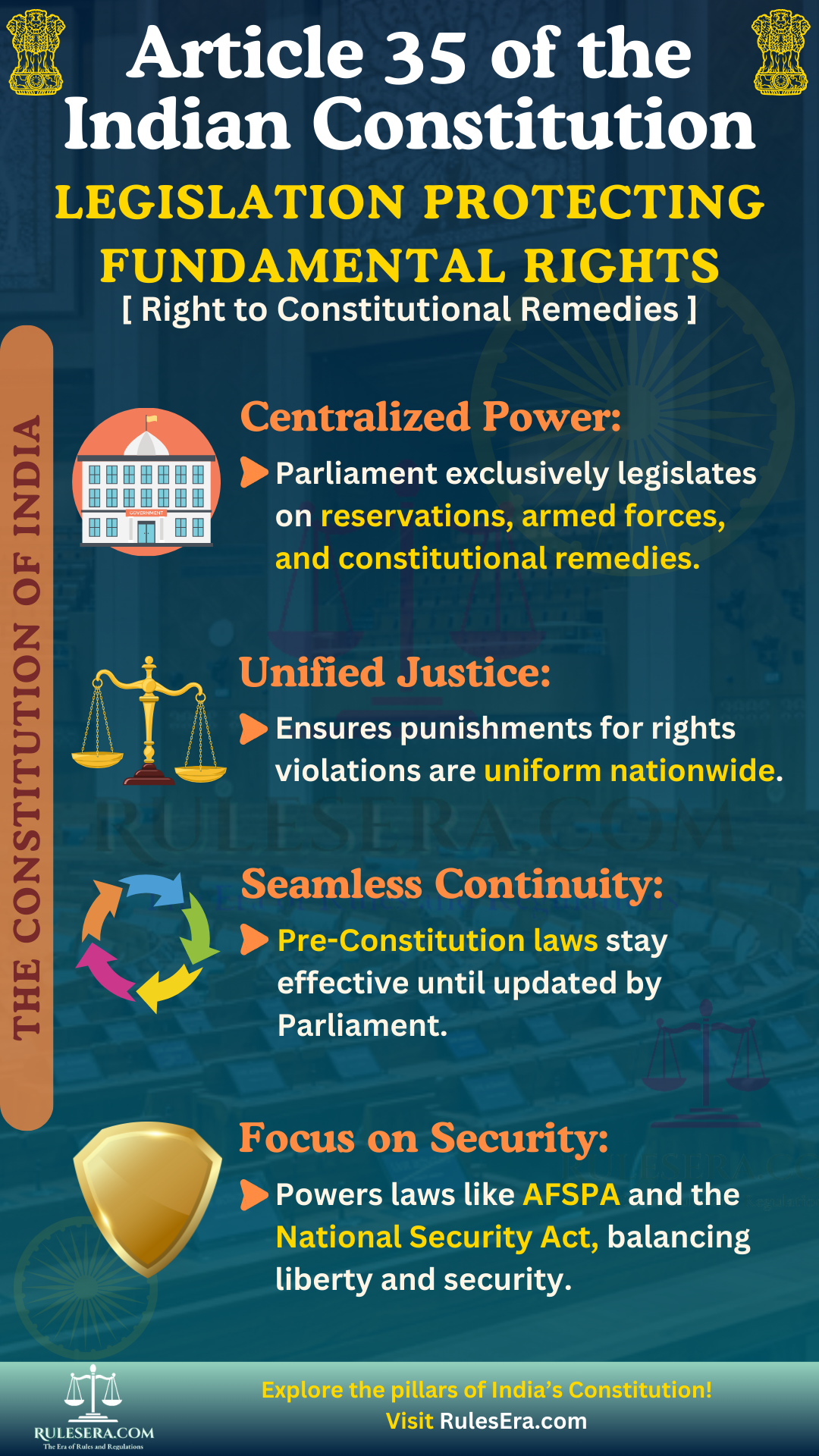Part III: Fundamental Rights
Article 35: Legislation to Give Effect to Fundamental Rights:: Right to Constitutional Remedies

Article 35 empowers Parliament, not state legislatures, to enact laws concerning fundamental rights, particularly in matters related to public employment, constitutional remedies, and national security.
Explanation
Article 35 assigns Parliament exclusive authority to legislate on specific fundamental rights, ensuring a uniform approach across the nation. It mandates the continuation of pre-existing laws related to these rights until they are amended by Parliament.
Key Aspects of Article 35
- Parliamentary Supremacy: Only Parliament can legislate on matters like public employment reservations, constitutional remedies, and armed forces rights.
- Power to Punish Offenders: Parliament is tasked with enacting laws that specify penalties for offenses under Part III of the Constitution.
- Continuity of Existing Laws: Pre-Constitution laws remain in effect until altered or repealed by Parliament, ensuring continuity in rights protection.
Real-Life Applications
Laws like the Armed Forces (Special Powers) Act (AFSPA) demonstrate Parliament’s authority under Article 35 to regulate and restrict certain rights to maintain national security and public order effectively.
Frequently Asked Questions (FAQs):
Article 35 centralizes certain legislative powers to ensure a unified approach to critical issues like public employment, national security, and constitutional remedies across the country.
Parliament has enacted laws like the National Security Act (NSA) and AFSPA, which reflect its authority under Article 35 to regulate rights in the interest of national security and public order.